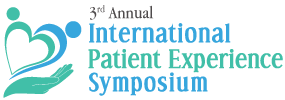
An Interview with Mohammed Khaled Alabdulaali
Dr. Mohammed Khalid Alabdulaali is the Assistant Deputy Minister for Hospitals Services in Saudi Arabia’s ministry of health and a consultant haematologist in the Department of Pathology, King Fahad Hospital, Hofuf. Dr.Alabdulalli was the General Director of Health Affairs – Jazan from Jan 2016 – 2017 and the Director of Health Affairs – Hassa from Feb 2015 – Jan 2016. He also was the Chief Executive Officer of King Fahad Hospital, Hofuf alongside being a haematologist.
Alongside his medical and managerial expertise, he is an active in academia, participating in scientific publication with 18 peer-reviewed articles, Dr. Alabdulalli also serving as a member and a chairman of several committees. More over Dr.Alabdulalli has working as an hoc ad hoc reviewer for several respected jounrnals and participated in selecting, designing and/or reviewing graduation and Master Degree studies. In addition, he was an assistant clinical professor, medical college, king Faisal University.
Interview
With the launch of Ada’a – the unique performance measurement model; Ministry of Health Saudi Arabia is conquering the challenge to rank more than 100 of its hospitals across the kingdom based on more than 40 KPI’s.
- This means we are able to learn from the best performing hospitals and share these experiences with hospitals that have areas for improvement.
- It also helps us to benchmark ourselves against world-class health organizations and accelerate our learning and improvements.
- Both these factors help us to continually improve the delivery of healthcare across the Kingdom and measurement is a fundamental factor in driving such improvements and making sure they are sustained.
Please share some of your insights on this massive hospital digitization and transformation project highlighting the challenges, experience and outcome?
- The challenges of transformation include the changing demographics of the patient population; for example patients are living longer and therefore in later-life they present with multiple co-morbidities.
- Other challenges are the rapid changes in technology which require significant investment and we have to ensure that investment generates value for money.
- Patient expectations are ever-increasing and their opportunity to understand their condition, due to exposure to the internet, means that they become more informed and more demanding of the healthcare system and its clinicians. As we make this transformation and address these challenges, it is important that we have a positive impact on health outcomes. People must see and feel the benefit of the changes, we are making.
What according to you are the vital requirements to meet the growing needs of healthcare consumerism? How is MoH trying to reengineer health care delivery to meet the objectives of Vision 2030?
One of the most important requirements of health consumerism is access to the right clinicians, at the right time, in the right place, receiving the right treatment; therefore we must create models of care which reduce the burden on hospitals and move care-delivery closer to the patient’s home. Healthcare consumerism must satisfy every service user throughout the continuum of care from maternity to palliative services; whilst ensuring the equality of care for all of our citizens, irrespective of their condition, their age, their location or their financial status. Patients are becoming familiar with faster responses from all types of organizations and they are expecting things to be right first time, every time. If they can get something from the other side of the world, the following day, they want their outpatient appointment now. If they want to see a doctor at 10pm; they expect a doctor to be available. This is consumerism. Public health is not an open purse; for example; people don’t need to go to a hospital or even to see a primary healthcare doctor every time they are unwell , there are alternative methods, for example; e-consultations using on-line video connections or help lines. This is the future of non-emergency care – imagine that in the Kingdom, 4 out of every 10 patients who arrive at ED are not emergency patients and they are consuming clinical time from emergency physicians who could be dealing with real emergency cases – people who are dying. The whole of society has a role, as model citizens, to think responsibly as consumers.
How healthcare regulators and providers can vastly improve their digital game to deliver frictionless, fully integrated experiences?
There is no doubt that every health care organisation, in the world, understands the importance of digital solutions in the future of healthcare delivery. However, very few have resolved this challenge, as yet; so the challenge continues! We hope to be at the forefront of digital transformation but; based on the voice of the patient and service users. There is no point creating more and more systems if they are not integrated and focused on improving the patient experience. The movement of the patient through the system must be made easier by technology not more complex. Healthcare providers need to trained not only in the use of the systems but in the emerging pathways for patients through the new models of care. If our clinicians cannot navigate the system, how can we expect our patients to?
As a speaker at PXEC, what are you most looking forward to?
I’m looking forward to learning from others. For example
- How they address the challenges that they have faced
- How they have simplified their systems
- How they have used the voice of the patients to transform the patient experience
- How they educated clinicians and service users to understand how to use the right service, first time, every time.
- What they have done to improve the equality of care across their healthcare systems
- How they have measured the effectiveness of their actions on patient experience through measurement

